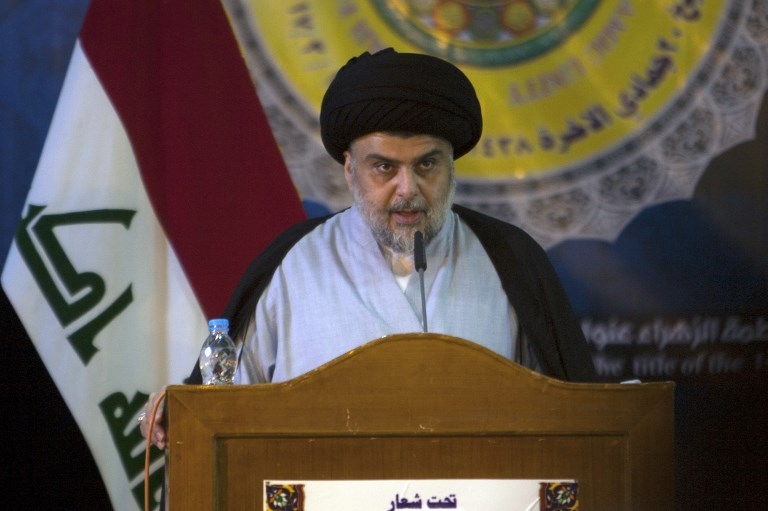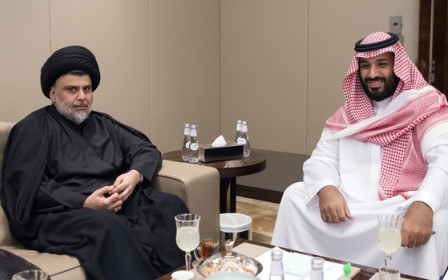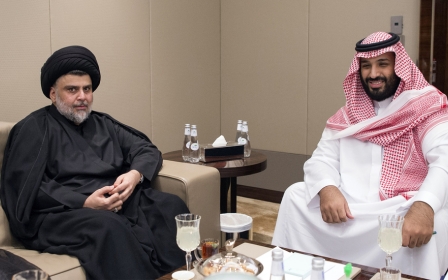Muqtada al-Sadr 'bans anti-Saudi slogans from Iraqi streets'

Influential Iraqi Shia cleric Muqtada al-Sadr have given orders to his followers to remove all anti-Saudi images, slogans and banners from Iraq's streets, according to claims in Iraqi media.
Anti-Saudi street banners and slogans have been raised after Shia cleric Nimr al-Nimr, who was a driving force of the protests that broke out in 2011 in the Sunni-ruled kingdom's Eastern Province, was executed by Saudi Arabia in 2016.
The report came in the Baghdad Post earlier this week. The claims could not be independently verified by Middle East Eye.
Meanwhile, the Saudi government has been forcibly relocating residents of Nimr's hometown of Awamiya as clashes continue between soldiers and militant groups in the old city. Awamiya has long been a flashpoint for protests by Saudi's Shia minority and demonstrations and unrest have been frequent.
The Sadrist movement also announced in a statement on Tuesday that Sadr - a fierce Iraqi nationalist who has recently been highly critical of the influence of Saudi's regional rival Iran in Iraq and neighbouring Syria - would adopt a new moderate religious discourse.
The moves came after Sadr met with Saudi Crown Prince Mohammed bin Salman on Sunday in a rare trip to the kingdom.
Little information has been publicly given about the reasons for the trip, which Sadr's office described as his first in 11 years.
But Kurdistan 24 reported that Salman and Sadr discussed the future of Iraq and the impact of the 25 September Kurdistan independence referendum. Both reportedly stressed a need for a unified Iraq while acknowledging increasing tensions between Erbil and Baghdad.
According to the Baghdad Post, Sadr said Saudi Arabia had pledged to allocate $10m to help Iraqi refugees.
Relations between Saudi Arabia and Iraq were severed after Saddam Hussein's invasion of Kuwait in 1990 and were only re-established in 2015.
Last month, Iraqi Prime Minister Haider al-Abadi met King Salman in Saudi Arabia in a bid to strengthen ties between the two countries.
"The countries agreed to establish a coordination council to upgrade relations to the hoped-for strategic level and open new horizons for cooperation in different fields," said the statement carried by the official Saudi Press Agency.
It said the two countries had achieved a "quantum leap" in bilateral relations and stressed the importance of further official visits.
New MEE newsletter: Jerusalem Dispatch
Sign up to get the latest insights and analysis on Israel-Palestine, alongside Turkey Unpacked and other MEE newsletters
Middle East Eye delivers independent and unrivalled coverage and analysis of the Middle East, North Africa and beyond. To learn more about republishing this content and the associated fees, please fill out this form. More about MEE can be found here.




